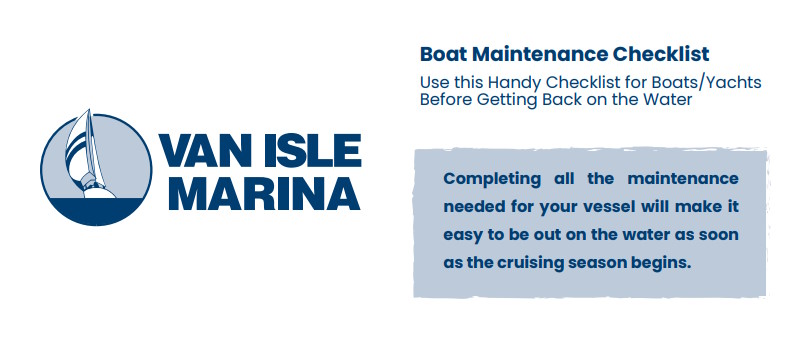BC Sport Fishing for the Fun of It
All About Sport Fishing and How to Catch the Big One
Residents and visitors to British Columbia are lucky to have access to some of the best sport fishing waters in the world.
BC sport fishing remains a popular pastime thanks to the abundance of sport fish that populate the local oceans, lakes and rivers. Whether you aim to catch and release or keep your catch, you are spoiled for choice for first-class sport fishing locations and fish species on the west coast of Canada.
Read on to learn more about sport fishing (also known as recreational fishing) and some of the best locations in British Columbia to try it out. We will also share what you need to know to make your next hunt for ‘the big one’ successful.
See our Sports Fishing Boats for Sale
All about BC Sport Fishing
Sport fishing is any style of fishing done for the primary purpose of recreation or competition. In other words, it is for fun – not to make a profit or for commercial food distribution. Sport fishing usually takes place from a boat, although in some cases can be done from shore.
Most sports anglers take part in the activity for the enjoyment of being in nature and the skill of a successful catch. Many sports or recreational anglers will choose to practice catch-and-release fishing, where special equipment is used not to harm the fish.
Many sport fishing competitions occur in saltwater and freshwater locations across BC each year, allowing anglers to show off their skills. The International Game Fish Association sets and oversees voluntary rules and guidelines for recreational fishing, including angling rules, world records, conservation and competitions.
What Species of Sport Fish Can You Catch in BC?
British Columbia is well known as a salmon fishing and halibut fishing hotspot, but there are many other sports fish species in saltwater and freshwater locations too. Although BC isn’t as well known for cod fishing, groundfish species, including Ling Cod and Pacific Cod, can be found in some areas.
The sport fish species most commonly sought by recreational anglers in BC include:
- Pacific Salmon – Chinook, Chum, Coho, Sockeye and Pink
- Trout- including cutthroat and steelhead
- Groundfish – including Halibut and Lingcod
- Sturgeon – mostly found inshore or in large river systems
See this complete list of fish species found in the Pacific region for more information about and images of each species.
Where are Good Sport Fishing Locations in BC and Vancouver Island?
There are so many good sports fishing spots in British Columbia that you are spoiled for choice. Generally, your location will be determined by whether you wish to fish offshore (saltwater) or in freshwater (lakes and rivers) and, of course, by the species you hope to catch.
Here are some of the sport fishing spots we recommend:
Vancouver Island
The waters around Vancouver Island are well known for saltwater sports fishing with a mix of inshore and offshore locations. Almost any area around the island will have some successful big-catch fishing, but some well-known and popular sites include:
- North West Vancouver Island – Known as the salmon highway, the areas around Kuyquot Sound and the Brooks Peninsula are great for both salmon and halibut fishing.
- Northern Vancouver Island – Visit Port Hardy and Cape Scott waters for good fishing opportunities for all 5 salmon species.
- South West Vancouver Island – Sooke is a popular salmon fishing spot for those with less experience or who wish to stay closer to shore.
Across British Columbia
Across the mainland of BC, there are plentiful opportunities for freshwater sportfishing in locations such as:
- Fernie River – Located in the foothills of the Rocky Mountains, this area is famous for Bull Trout fishing.
- Nicola Valley – The many lakes of this region are perfect for trout fishing.
- Fraser River – Well known for the chance to fish for the mighty Sturgeon, although there are strict catch and release rules for this ancient species.
Visit fishingbc.com for plenty of good suggestions for fishing locations and itineraries across Vancouver Island and the province.
What Do You Need to Know Before Sport Fishing in BC?
To ensure a fun and successful recreational fishing adventure, you should read the following recommendations:
Get the appropriate licence
Depending on where you plan to fish, you will require either a tidal (saltwater) fishing licence or a freshwater fishing licence.
Don’t forget – you will need a salmon conservation stamp if you wish to retain any species of pacific salmon.
Know the local recreational fishing regulations
Make sure you understand British Columbia sports fishing rules and regulations before setting out on a fishing trip. This guide provides information about catch and release restrictions, catch limits and tagging and how to identify your catch and protected fishing areas.
Remember your catch limits
If you plan to retain some of your catch, ensure you are up-to-date with the permitted catch limits for each species. Note that limits can vary in different areas.
If in doubt, fishing equipment suppliers are a great source of information regarding local rules and the best locations for sports fishing.
How to Catch ‘The Big One’
Some things to bear in mind that will help you be successful in your quest to catch (and release) the big one:
- Plan ahead: Make sure you research your preferred location, the species of fish you may catch there, and, most importantly, check the weather forecast.
- Get a reliable boat: Before setting off on any sport fishing trip, you must have a suitable boat and all the necessary equipment.
Recommended boats for offshore sports fishing include:
-
- Centre console
- Sports yachts
- Walkarounds
These types of sports fishing vessels all offer good deck space, built-in rod holders and lots of storage space.
- Be prepared with the right equipment: If you plan to catch and release, you will need to purchase some specialist equipment, such as barbless hooks, which don’t harm the fish.
Tip: Remember to carry enough emergency and safety equipment for everyone on board.
- Have Patience: Some days, the fish don’t bite immediately, but patience usually pays off. Of course, you can always switch to a different location – many choices exist.
Van Isle Marina – a Good Base for Your Sport Fishing Adventures
Van Isle Marina is proud to be located near some of the best recreational fishing waters in the world. From our state-of-the-art marina in Sidney, BC, you can easily access some great fishing experiences.
If you’re interested in a new sports fishing yacht, talk to our experienced yacht sales team, who can find you the perfect boat. You can also top up on supplies and equipment at our on-site store at the fuel dock.
Contact us today for more information about mooring with us and our other services.

